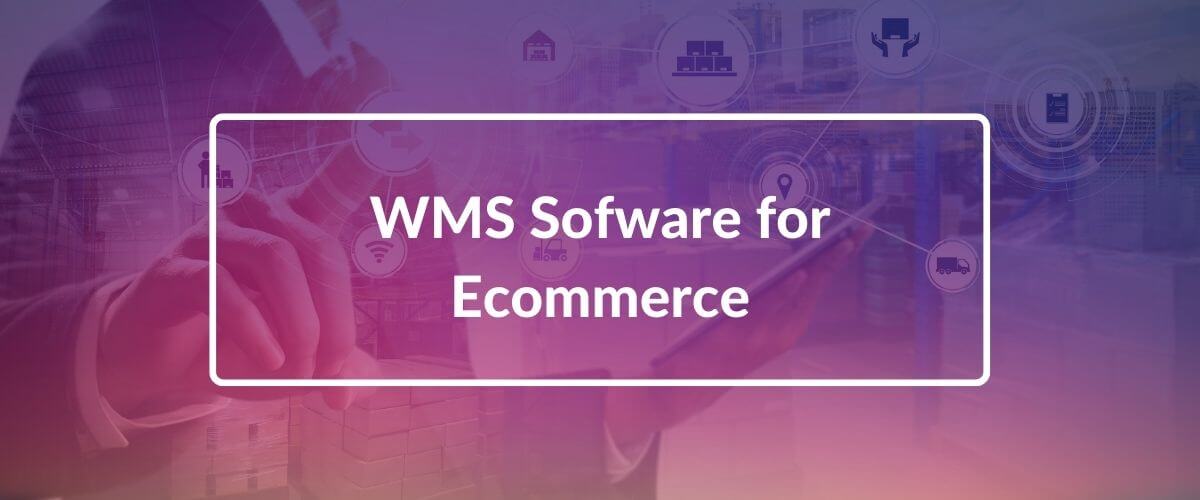It should come as no surprise that ecommerce is snowballing. Online purchases are growing exponentially across all business models, from direct-to-customer (DTC) and business-to-business (B2B) to hybrid operations.
This increase has put a massive strain on retailers, fulfillment networks and third-party logistics (3PL) providers, highlighting inefficiencies and unnecessary costs. Implementing an ecommerce WMS is no longer nice to have. Instead, it’s quickly becoming a must-have tool.
In this guide, we discuss the current ecommerce market and how your business can benefit from ecommerce WMS software. Before we get started, here are five key takeaways to know about ecommerce WMS:
Key Takeaways
- Ecommerce continues to be a preferred shopping method for today’s consumers, with recent data indicating ecommerce sales will reach $7.5 trillion in 2026.
- Businesses can no longer rely on a website to cover all of their customers’ needs; ecommerce WMS software is needed to meet high-volume DTC demand.
- By integrating with ecommerce platforms, ecommerce WMS solutions can register new orders and initiate warehouse processes to support ecommerce fulfillment activities.
- The benefits of an ecommerce WMS include: improved inventory control, efficient and accurate order fulfillment across the entire cycle, real-time inventory counts and more.
- Integration with popular shipping companies can help your business meet the growing demand for same-day delivery, a service only 38% of retailers are currently offering.
Contents
How Much Has Ecommerce Grown?
When countries started locking down and closing borders in 2019, the demand for goods and services didn’t disappear. COVID-19 highlighted gaps in the global supply chain and the importance of easy-to-use online sales platforms.
Now, ecommerce continues to be a preferred shopping method for many. According to recent data, ecommerce sales are expected to reach $7.5 trillion in 2026, a large increase from the $5.8 trillion estimated in 2023.
Where people participate in ecommerce is also shifting. Customers are not only shopping from their homes on laptops or personal computers. For example, mobile shopping—purchases made on a smartphone or tablet—continues to grow. Customers can literally shop from anywhere, at any time, and your warehouse needs to be ready to meet the demand.
Interactive Shopping Trends Are Inspiring More Ecommerce
Ecommerce is growing worldwide, and the way people shop online is also changing. Businesses can no longer rely on a website to cover all of their customers’ needs, and warehouse operators will need to have adequate ecommerce WMS software in place to meet the demand.
From virtual reality for immersive, feature-rich shopping experiences to augmented reality tools to provide information about products on the shelves, many new technologies are changing how we shop. Consumers are also demanding a more responsive and personalized experience, looking for options such as same-day delivery services and shoppable TV.

What Is an Ecommerce WMS?
An ecommerce WMS is a warehouse management solution built to support ecommerce fulfillment activities within a warehouse. These solutions not only monitor warehouse inventory and control the operations within a facility (including receiving, putaway, picking and packing, shippoing, and replenishment), but are integrated with ecommerce platforms to ensure streamlined order management.
By integrating with ecommerce platforms, ecommerce WMS solutions can register new orders and initiate warehouse processes to keep up with demand and maximize warehouse efficiency. Using an ecommerce WMS helps simplify fulfillment processes, keep inventory levels at the optimal levels and expedite order delivery by routing orders based on consumer’s shipping addresses and preferences.
The Benefits of an Ecommerce WMS
In addition to personalized experiences, consumers want their orders on their doorstep in the next two hours. Can your current ecommerce setup meet these ever-evolving demands?
You may already be struggling to keep up with the growing number of orders coming through your doors. Warehouse and inventory management systems and ecommerce can be the best of friends, allowing you to meet the needs of your customers and setting you up for future growth.
The benefits of an ecommerce WMS include:
- Improved inventory control, from the minute it arrives in your receiving bay to the moment it goes out the door to the customer
- Efficient and accurate order fulfillment across the entire cycle, including picking, packing, and shipping
- Accurate, up-to-date, real-time inventory counts
- Improved employee efficiency
It’s not enough to have a system that connects with suppliers and brands. Customers are no longer willing to wait for a week or more for orders to be delivered. Integration with popular shipping companies can help your business meet the growing demand for same-day delivery, a service only 38% of retailers are currently offering.
Logiwa: The Best Ecommerce WMS Software
At Logiwa, we know that time is money. You don’t have a ton of time to spend getting a new Ecommerce WMS installed. With Logiwa WMS, you can be up and running on our cloud-based system in as little as four weeks. Plus, our 9-minute customer support response time will ensure that help is available when you need it.
Our Ecommerce WMS can give you real-time visibility into inventory levels across all of your locations. This can help you prevent out-of-stock inventory and overselling and improve order accuracy and fulfillment rates. Being able to seamlessly integrate with ecommerce, marketplace, shipping, and accounting systems will allow you to scale your business and reduce operating costs.
To learn more about how Logiwa WMS can help you meet growing demand, request a demo today!
FAQs Related to Ecommerce WMS Software
Can a WMS Help My Business Meet Same-Day Delivery Demands?
With available integrations with popular shipping companies, your business can grow to meet the demand for same-day delivery options from customers.
Why Is Accurate Inventory Critical in Ecommerce Services?
When shopping online, no one wants to see an “out of stock” message. Ecommerce WMS software can provide real-time inventory information to ensure out-of-stock or low inventory situations no longer happen.
How Quickly Can I Have an Ecommerce WMS Set Up for My Business?
Logiwa’s experts can have your customized warehouse management system for ecommerce ready to go in as little as 6-8 weeks, helping you quickly meet the growing demand from customers while improving your warehouse operations and saving you money.
Will Implementing an Ecommerce WMS Require Extra Employees?
No additional employees are needed when you start using a WMS. You’ll actually see improved efficiency from your current team when you use ecommerce warehouse management software, allowing you to better serve your customers and increase your capacity to grow your business.
How Do I Find an Ecommerce WMS Software?
Some of the key criteria to consider when looking for an ecommerce WMS include: integration capabilities, real-time inventory visibility and order management features like smart order routing, shipping rate shopping, and software automation that supports multi-item order picking and packing.
To find the best Ecommerce WMS software, connect with us at Logiwa!






